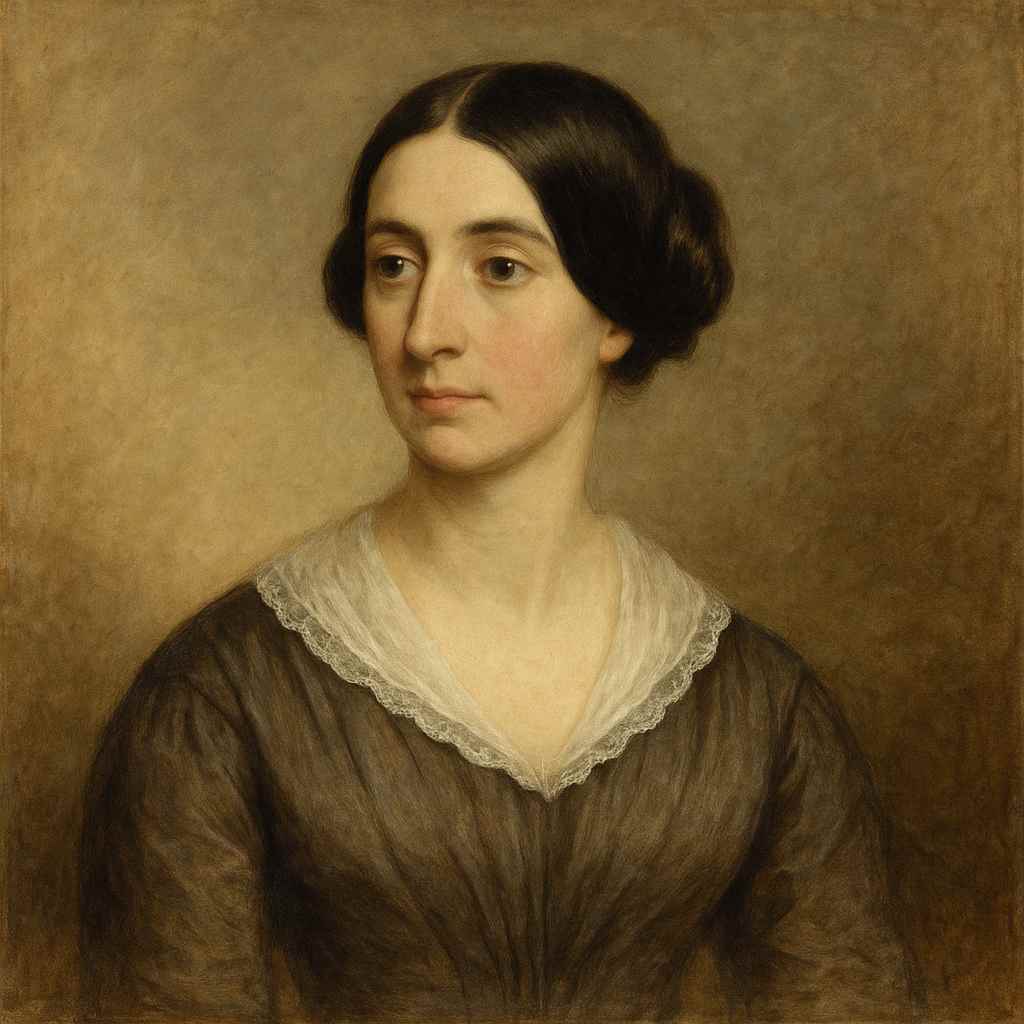7 Poems by Caroline Elizabeth Sheridan
1808 - 1877
Caroline Elizabeth Sheridan Biography
Caroline Elizabeth Sheridan Norton was a celebrated 19th-century English writer, poet, and social reformer whose life and literary career were shaped by her advocacy for women’s rights and her turbulent personal experiences. Born on March 22, 1808, into a distinguished family with political and literary roots, Caroline Norton was destined to make an impact. Her grandfather, the renowned playwright Richard Brinsley Sheridan, ensured that Caroline was raised in an environment steeped in the arts and political discourse. However, her journey to becoming a significant literary and social figure was fraught with personal turmoil, a broken marriage, and a series of high-profile legal battles that highlighted the restrictive and unjust treatment of women in Victorian England.
Caroline’s early life was one of comfort and cultural enrichment, yet the circumstances surrounding her family were precarious. Her father, Thomas Sheridan, was a colonial administrator, and her mother, Caroline Henrietta Callander, was known for her beauty and wit. Though Caroline and her siblings were raised with education and literary appreciation, the family faced financial difficulties following her father's death in 1817. This loss propelled Caroline and her sisters to use their social and artistic talents as a means of securing advantageous marriages or financial independence, which would eventually set the stage for Caroline’s dramatic life.
In 1827, at just 19, Caroline married George Chapple Norton, a barrister and MP, whose character and disposition were wholly incompatible with hers. While she was known for her intellect, charm, and quick wit, George was often described as volatile, jealous, and abusive. Their marriage quickly descended into conflict and discord, yet divorce was nearly impossible under the rigid marriage laws of the time. Caroline endured her husband’s temper and attempts to control her life, particularly as he resented her social popularity and growing literary success. Though the marriage was a source of profound unhappiness, it was her turbulent relationship with George that ultimately spurred her involvement in social reform and her exploration of themes related to women’s oppression in her writing.
Caroline began her literary career with the publication of several poetry collections in the late 1820s and early 1830s, such as The Sorrows of Rosalie and The Undying One. These early works exhibited a Romantic influence, with themes of lost love, tragedy, and the supernatural, reflecting the popular styles of the era. Caroline’s writing was deeply personal, often drawn from her own experiences and emotions, and her poetic voice was noted for its sincerity and emotive power. Although she was influenced by the Romantic tradition, she brought a unique sensibility to her work, one that reflected her critical engagement with societal norms and her awareness of the injustices faced by women.
The conflict between Caroline and her husband reached a breaking point in 1836, when George Norton accused her of having an affair with the then-Prime Minister, Lord Melbourne. This accusation led to a sensational legal battle in which George attempted to sue Melbourne for "criminal conversation" (a term for adultery), seeking damages for the supposed infidelity. The trial was scandalous and widely reported, and although Melbourne was acquitted and Caroline was vindicated, the case highlighted the deeply unfair and humiliating treatment of women within the legal system. Despite her innocence, Caroline suffered reputational damage and faced societal ostracism, as Victorian society was quick to judge women accused of moral indiscretions. This trial and the public scrutiny that accompanied it had a lasting impact on Caroline, driving her to speak out against the legal and social constraints imposed on women.
The oppressive nature of her marriage and the lack of legal rights for women inspired Caroline to become an advocate for women’s rights, particularly in the areas of child custody and marital property. Under the laws of the time, a husband had near-complete control over his wife’s property, earnings, and even children, and women had virtually no legal recourse if they were mistreated or estranged from their husbands. After the separation from George Norton, Caroline faced the anguish of being legally separated from her children, as her husband refused to allow her access to them as a means of punishment. This painful experience galvanized her efforts to change the law.
Caroline began to use her position and writing as a platform to advocate for social and legal reforms. She wrote pamphlets, open letters, and articles highlighting the injustices faced by married women, particularly focusing on the issue of child custody. Her most famous pamphlet, A Plain Letter to the Lord Chancellor on the Infant Custody Bill (1839), argued passionately for mothers’ rights to custody of their young children. This work resonated widely, bringing public attention to the legal system's injustices and contributing to the eventual passage of the Custody of Infants Act in 1839, which granted mothers the right to petition for custody of children under the age of seven. This landmark legislation was a significant step forward in women’s rights and set a precedent for further reforms.
Caroline Norton’s advocacy extended beyond child custody, as she continued to campaign for reforms to protect women’s legal rights. Her efforts were instrumental in the passage of the Matrimonial Causes Act of 1857, which established civil divorce and allowed women to retain their own property upon separation. Though limited in scope, this law marked a crucial shift in the treatment of women in marriage, laying the groundwork for later reforms. Caroline’s lobbying, often through private letters to politicians and public writings, was driven by her personal experience and a sense of moral duty to prevent other women from suffering as she had.
Aside from her activism, Caroline was a prolific writer, producing novels, poetry, and articles that reflected her views on society, morality, and gender roles. Her novel The Wife and Woman’s Reward (1835) addressed the limited opportunities and dependence of women in marriage, echoing themes from her own life. Through her characters and narratives, Caroline challenged the idealized view of domesticity and highlighted the struggles faced by women in an era that afforded them few personal freedoms. Her poetry, though often overshadowed by her social reform efforts, continued to express her emotional depth and lyrical skill. Poems such as The Dream and The Child of the Islands are notable for their exploration of nature, spirituality, and human suffering, and her work often drew on classical and mythological references, blending them with contemporary concerns.
In addition to her public writings, Caroline’s private correspondence and journals reveal a sharp intellect, wit, and resilience in the face of adversity. She maintained friendships with influential figures of her time, including writers, politicians, and intellectuals, and her social circle included luminaries such as Charles Dickens and Mary Shelley. Her charisma and conversational brilliance were widely acknowledged, and she was known for her sharp wit and sense of humor, traits that endeared her to friends and acquaintances even during periods of personal struggle.
Caroline’s later years were marked by continued financial and personal challenges, but her resilience and commitment to her causes never wavered. Despite the toll that her battles with George Norton and the legal system had taken on her health and well-being, she remained engaged in social and literary circles, often publishing anonymously or under pseudonyms to avoid further scandal. Her last major work, Lost and Saved (1863), dealt with themes of redemption, moral judgment, and the social constraints on women, echoing the themes that had defined her life and career.
Caroline Norton died on June 15, 1877, leaving behind a legacy of courage, literary accomplishment, and social reform. Her work as a writer and advocate for women’s rights helped to pave the way for subsequent generations of women who fought for equality and justice. Though often remembered for her dramatic life and the scandals that surrounded her, Caroline’s true legacy lies in her role as a pioneer in the struggle for women’s legal rights and her contributions to Victorian literature.
Her life and work continue to be studied and appreciated for their insight into the gender dynamics and social mores of Victorian society. In many ways, Caroline Norton embodied the contradictions and challenges of her era: she was both celebrated and vilified, constrained by society yet defiant in her pursuit of justice. Through her poetry, prose, and reform efforts, she left an indelible mark on 19th-century England and inspired future advocates for women’s rights, ensuring her place in history as a remarkable writer and reformer whose influence extended far beyond her time.
This text was generated by AI and is for reference only. Learn more
Username Information
No username is open
Everything is free to use, but donations are always appreciated.
Quick Links
© 2024-2025 R.I.Chalmers (V2Melody).

All music on this site by R.I.Chalmers (V2Melody) is licensed under a Creative Commons Attribution-NonCommercial 4.0 International License.
Attribution Requirement:
When using this music, you must give appropriate credit by including the following statement (or equivalent) wherever the music is used or credited:
"Music by R.I.Chalmers (V2Melody) – https://v2melody.com"
Support My Work:
If you enjoy this music and would like to support future creations, your thanks are always welcome but never required.
Thanks!








